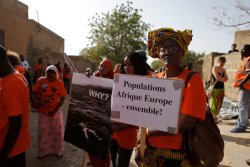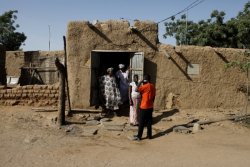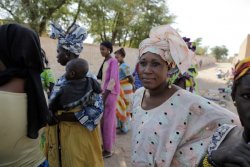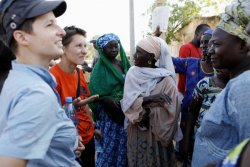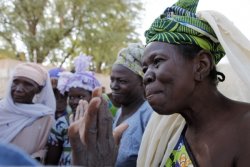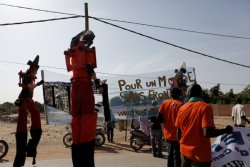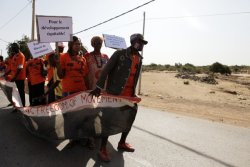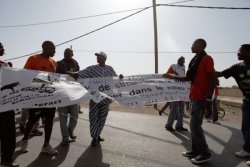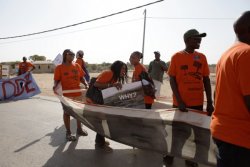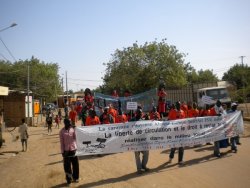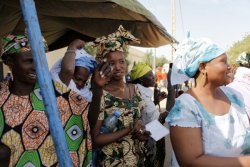Funeral March commemorating the victims of fortress europe
Demonstration in Nioro, close to the border between Mali and Mauretania
28th January, Nioro
About 250 people took part in the funeral procession that was followed by speeches and discussions with the local population. The route led through the main street of Nioro and passed the local market. The small town which is located next to the Sahara desert and near the border between Mali and Mauretania may never have witnessed a similar event before. The mixture of afro-european protesters wearing their flashy orange or light blue Caravan-T-shirts, the variety and large number of banners and flyers as well as a 10m long banderole where the names of 14,600 victims of the EU border regime were written on, announcements through a mobile loudspeaker-set, accompanied by a troupe of people on stilts, the manifestation drew massive and animated attention from the Nioro residents. Lots of children joined the demonstration in spite of the heat, other people from Nioro waited under shadowy tents on the assembly square. AME’s Ousmane Diarra started the speeches denunciating the EU’s migration regime and its deadly consequences, which can be documented even here at the West African border of Mali and Mauretania and beyond that inside the territory of Mali. Evidence is the fate of deportees. Various representatives of the network Afrique-Europe-Interact and French Sans Papiers denounced the EU border regime. Accompanied by the original sound of a sea-based FRONTEX operation the crucial role of the European Border Agency in the externalization of the EU’s anti-migration policies was outlined. The Caravan and its political agenda met agreement from a majority of locals rather than mere interest. Several hundreds followed the invitation to a public film screening at the Caravan activists camp in the evening. At the same time a women’s meeting with 30-50 participants from Nioro took place. Vivid exchange of problems, demands and activities of women – living in both Mali and Europe – as well as the need for further collaboration were expressed.

